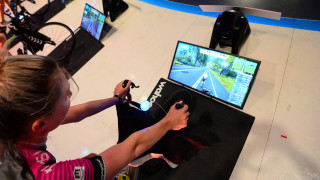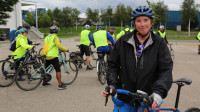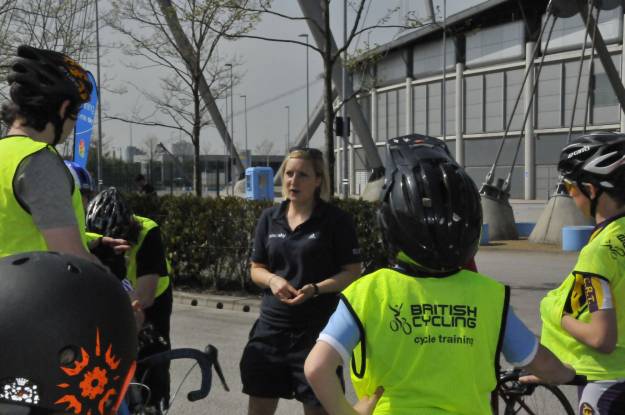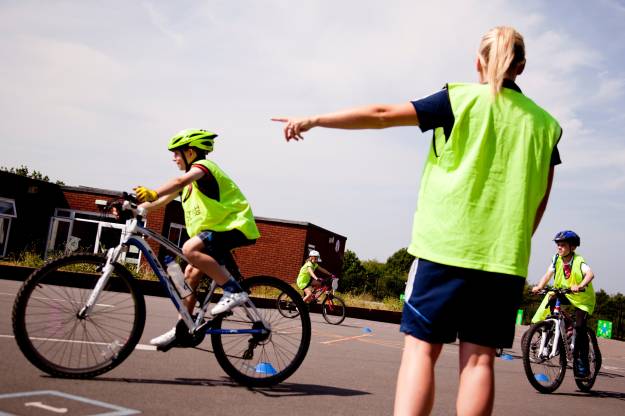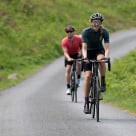Following on from recommendations and in line with current Government advice, coaches are doing some great work in coaching riders remotely. As with many things across the sporting world, activity that can take place is doing so online, and British Cycling has issued a toolkit to clubs to help support virtual coaching via platforms such as Zwift, Zoom, Discord, Facebook Live and Teams.
We are continuing to receive fantastic examples of effective coaching across these platforms, but are also being contacted by coaches and clubs eager to understand the best practice with regards to these methods, which will be new to many.
The following contains some advice to get you started with virtual coaching:
As a coach you will be adapting and modifying your approach to delivery, but you should continue to plan for the session as you would a face-to-face session, including consideration of all the factors contributing to an effective and enjoyable session. It is important to be clear on the focus for the session, as riders may have different expectations. Can you share the plan for the session in advance?
Platforms will differ in privacy settings, so you will need to ensure you understand these yourself, and share them with your riders. Consent forms should be completed by or on behalf of all participants, and this can be done virtually. You may find you have a mixed group of adults and younger riders in the sessions, so consideration needs to go into how to manage a group online.
In addition to physical wellbeing, video sessions can create an opportunity in this current situation for some social interaction with friends and club mates. Some participants may enjoy the opportunity to talk to others, so perhaps you can add time at the end of the session to chat as a group?
As a reminder, here are some coaching considerations for virtual sessions:
Coach – only deliver a session which you feel confident and competent to deliver. Ensure you are taking into account all the factors to keep you and your riders safe, and that you are operating within remit. You can set ground rules for the session around behaviours.
Riders – ensure you know who is joining the session, and that you know as much as possible about the riders; their fitness, level of riding, and any specific issues you need to be aware of. As with any coaching session, you should have rider information, which could be gathered on signing up to an online session if you don’t already have it. How will you check on readiness of riders for the session?
Area – you don’t have a coaching area to check, but the riders all have their own space, so the challenge will be to ensure they have set up a safe area with enough space for equipment to be used in the session, e.g. rollers, static bike or turbo trainer.
Equipment – it is impossible to check the riders’ equipment, so consider how you will ensure the riders have made these checks, and understand they are responsible. Will parents set up the equipment for younger riders, and be available throughout the session to support?
Task – from the information you have on the riders you should be able to plan appropriate activities to develop technique and fitness, but you may have a very wide range of riders with different fitness levels and skills, along with a mix of adults and younger riders. How will you differentiate without being able to observe riders as well as you would in a face-to-face session? Think about level of intensity and how you can evaluate this and observe effort or signs of fatigue.
Feedback – is key for delivering sessions virtually, and should fill in the gaps where you are unsure if the session in meeting the goal. Riders may even be more inclined to give you more feedback remotely, and this should inform future sessions.
In addition, if you are planning on including under-18s in your activities, you need to ensure that you are following the guidelines that you would normally do for any contact and engagement
with children/young people via social media. The Child Protection in Sport Unit have some current guidance on remote teaching and coaching here.
Some further key safeguarding considerations are listed below:
- If you are setting up a closed group that involves under-18s, make sure you include their parents and communicate with them all; don’t engage in any one-to-one contact with young riders.
- Consider the platform that is being used. Are privacy and confidentiality settings appropriate? For more information on different websites and platforms see NetAware.
- Consider asking a parent(s) to be a part of any activities so that everything is kept transparent. In any case, having a second adult involved in the session would be recommended.
- Be clear about the content and training requirements of the sessions with the riders and their parents.
- Set some ground rules. Ensure appropriate language and behaviour is being used and remind your group that all participants must be treated with respect. The British Cycling Code of Conduct must still be adhered to at all times.
- Ensure your riders are aware that they can report any concerns or misconduct that they experience or observe during virtual sessions.
- Complete a risk assessment as normal. For example, if a participant is injured during the activity/session what action will be taken?
- Be sensitive to, and consider the needs of, individual participants, including d/Deaf and disabled children.
- Do not allow children to post photos/videos or screenshots of themselves or anyone else and ensure others do not post images without the appropriate consents being in place.
- Remember, if you and your riders are joining public sessions then you have less control over the conduct of other participants.
- Remember to check that your DBS Certificate is still valid. Further guidance on the DBS requirements can be found here.
- Be sensible and follow your usual thought process in terms of protecting both you and your riders.
We should also remember that the current requirements on social distancing place some individuals at risk, either of isolation and neglect, domestic violence or other forms of abuse. If you become concerned about the wellbeing and welfare of anyone that you have virtual contact with then you should share this with our Lead Safeguarding Officer here.
Further information on the British Cycling Safeguarding Children and Young People Policy and reporting concerns can also be found on our safeguarding page. Additional information and guidance on remote coaching is available from UKCoaching.
We should also remember that the current requirements on social distancing place some individuals at risk, either of isolation and neglect, domestic violence or other forms of abuse. If you become concerned about the wellbeing and welfare of anyone that you have virtual contact with then you should share this with our Lead Safeguarding Officer here.
Further information on the British Cycling Safeguarding Children and Young People Policy and reporting concerns can also be found on our safeguarding page. Additional information and guidance on remote coaching is available from UKCoaching.

